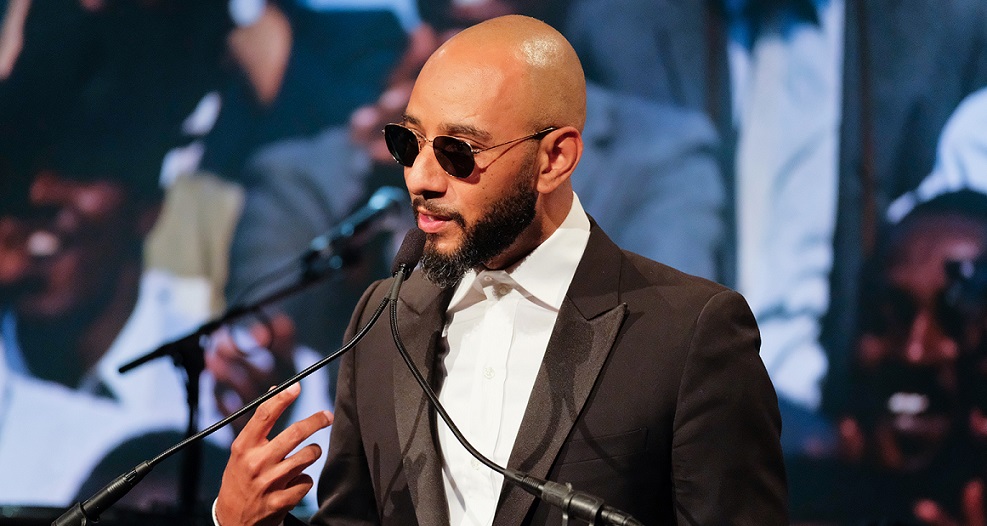

Besides releasing another five albums, including the platinum sellers …And Then There Was Xand The Great Depression, DMX was a keen actor. Popping up on Onyx’s ‘Shut ‘Em Down’, The LOX’s ‘Money, Power & Respect’, and Ma$e’s ’24 Hours To Live’, these are just a few of his extensive back catalogue features that made him a rap household name. Going on to be one of the most successful rap artists of all time selling over 30 million albums, DMX was also the industry’s go-to-guy as far as guest verses were concerned. At the time only the second rapper in history (following 2Pac) to have two number one albums within a one year period, there was no stopping the self-proclaimed dog (or his bizarrely appealing barking, growling, and snarling). Within a year of release X unleashed another number one album, Flesh Of My Flesh, Blood Of My Blood. With P.K, Swizz Beatz and Dame Grease instrumentally complementing the chilling ride through the eyes of a street orphan, the essence of inner-city machoism was captured on the tracks ‘Get At Me Dog’, ‘Stop Being Greedy’, and of course the label’s trademark chant ‘Ruff Ryders’ Anthem’. Selling more than five million copies worldwide of his 1998 debut album It’s Dark And Hell Is Hot, topping Billboard’s Top 200 chart in the process, the aggressive nature of Dark Man X combined with his twisted tales of unruly actions and haunting street dreams made for what many claims to be a certified Hip-Hop classic. With the backdrops now established the first artist out the gate was DMX. Producing the majority of DMX’s multi-platinum selling Flesh Of My Flesh, Blood Of My Blood, Eve’s Let There Be Eve…Ruff Ryders ‘ First Lady, and The LOX’s We Are The Streets, for an idea of his key heavy electronic soundscapes and bass littered backdrops these are the best places to start.

Ranked in The Source’s 20 Greatest Producers list, Swizz is responsible for millions of record sales with clients including DMX, Jay Z (whom he won a Grammy Award with for the song ‘On To The Next One’), Eve, Cassidy, Busta Rhymes, T.I., and many more over a 15-year career behind the boards.
#RUFF RYDERS ENTERTAINMENT ADDRESS FULL#
Stories (2002) and One Man Band Man (2007) – Swizz started his own label Full Surface in conjunction with Ruff Ryders in 2001 and was most notably responsible for signing Philly MC Cassidy and Atlanta rapper Yung Wun. Releasing two solo albums – Swizz Beatz Presents G.H.E.T.T.O. Going on to create smash hits for Noreaga (‘Banned From T.V’) and Jay Z (‘Money, Cash, Hoes’), the teenage sensation’s use of Korg Trinity and Triton keyboards to accentuate the performance aspect of his music made him individual in a genre where sampling was king. Nephew to Dee, Wah and Chivon, Swizz’s first major beat came when he sold the instrumental for ‘Ruff Ryders’ Anthem’ to DMX, which not only catapulted X’s career to great heights but also his own. held it down, the main face of the label’s production team was Kasseem “Swizz Beatz” Dean. Recruiting a team of rappers, singers, and producers, the litter was born and the dogs were set loose.īehind every successful crew/label is a group of in-house producers with a signature sound that differentiates them from everyone else.


It was following DMX’s mega-success as a multi-platinum selling artist for Def Jam Records that the Double R started their own label imprint through Interscope Records. Making up the team’s leadership trinity, siblings Chivon Dean, Joaquin “Waah” Dean, and Darrin “Dee” Dean managed rappers The LOX while signed to Bad Boy and upcoming spitter DMX. The Ruff Ryders earned their place at the table of these debates.įounded in 1988, year’s before their name lived in the mouths of rap fans the world over, Ruff Ryders Entertainment actually started out as a management company. Some Hip-Hop fans would even go as far as to create a “fantasy team” based upon the different members of various squads. While each would have their chance to shine individually, as a crew they were stronger, instigating debates on which crew was the best, which member was better lyrically, and who could take on who crew to crew. Each with a headlining artist, these talented groups ran in packs like wolves. During an era where rap crews ran Hip-Hop, the likes of the Wu-Tang Clan, Death Row Records, Native Tongues, and Bad Boy Records owned the airwaves.


 0 kommentar(er)
0 kommentar(er)
